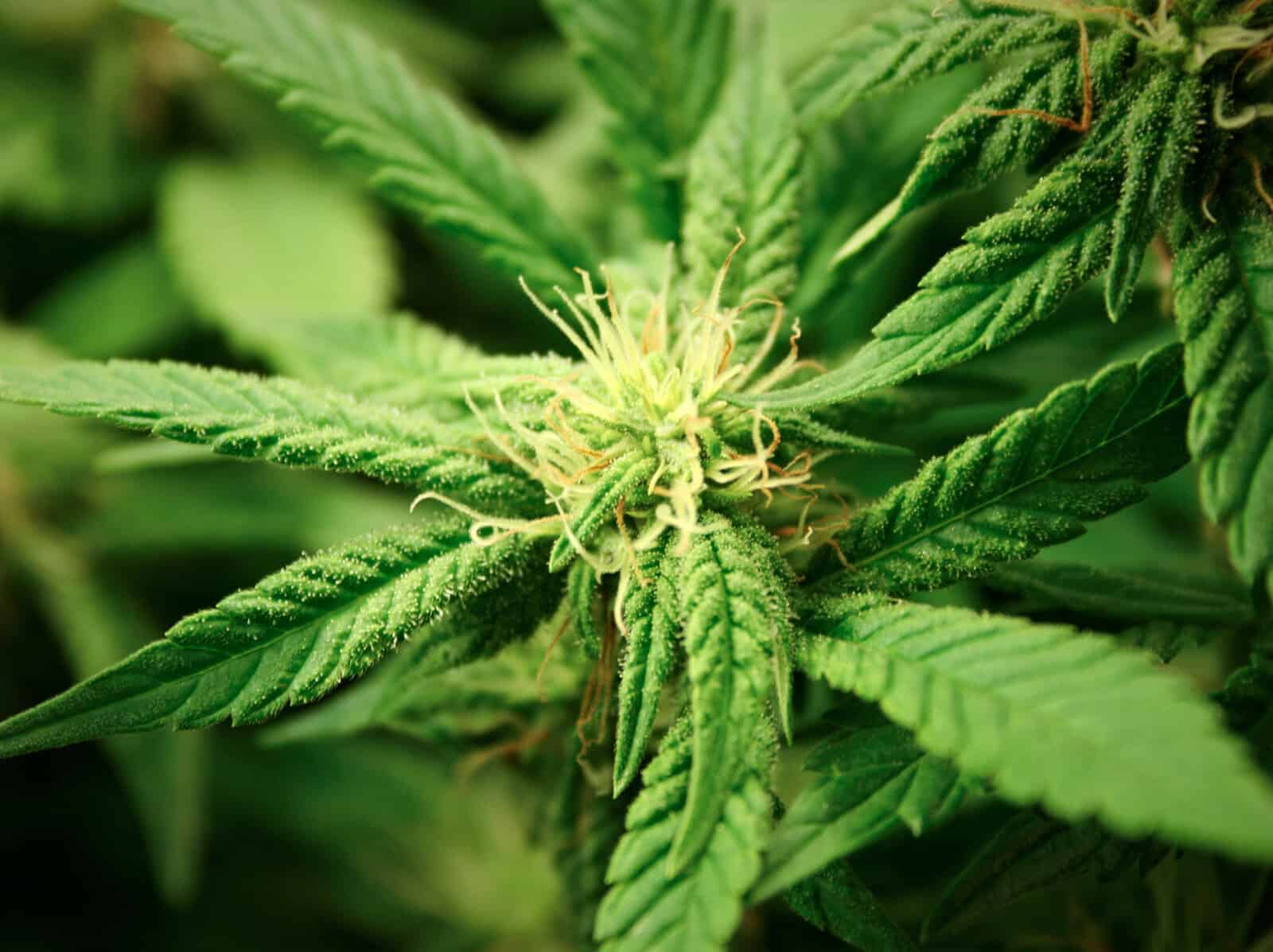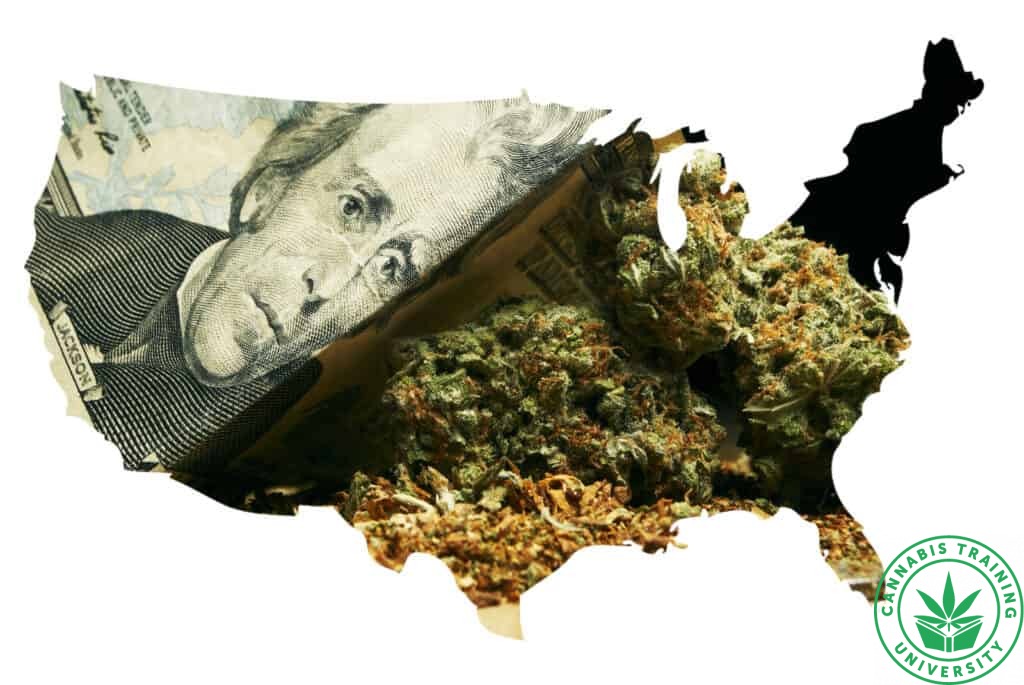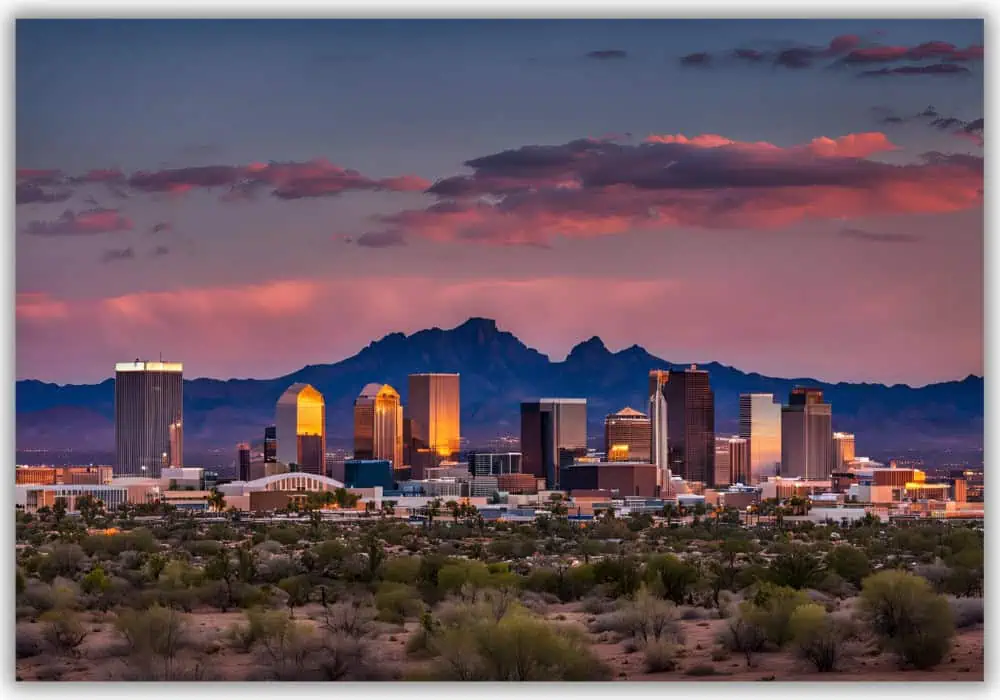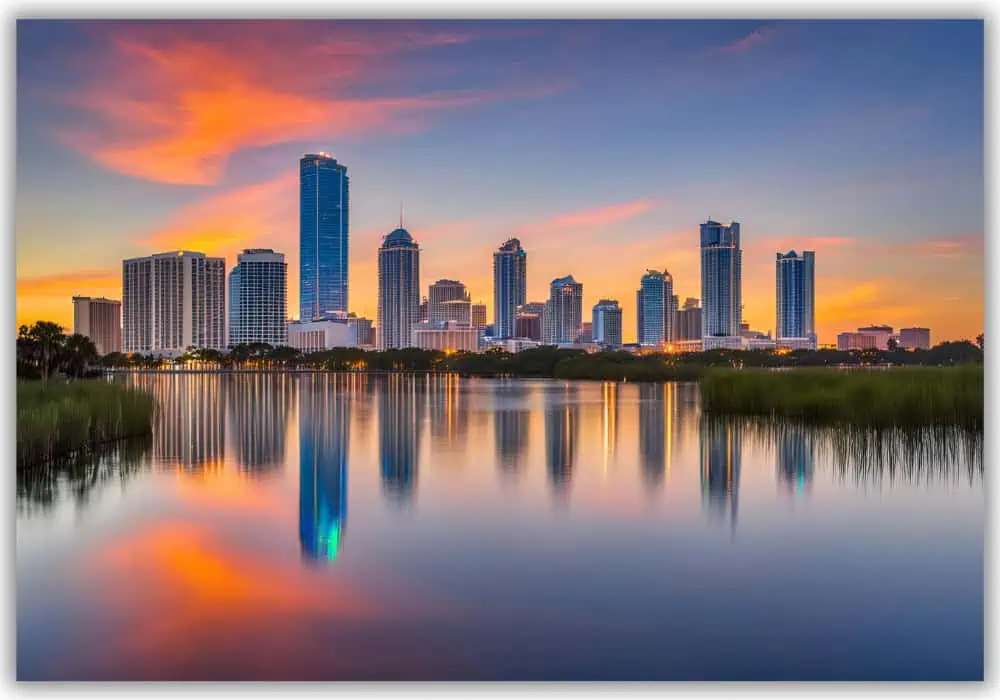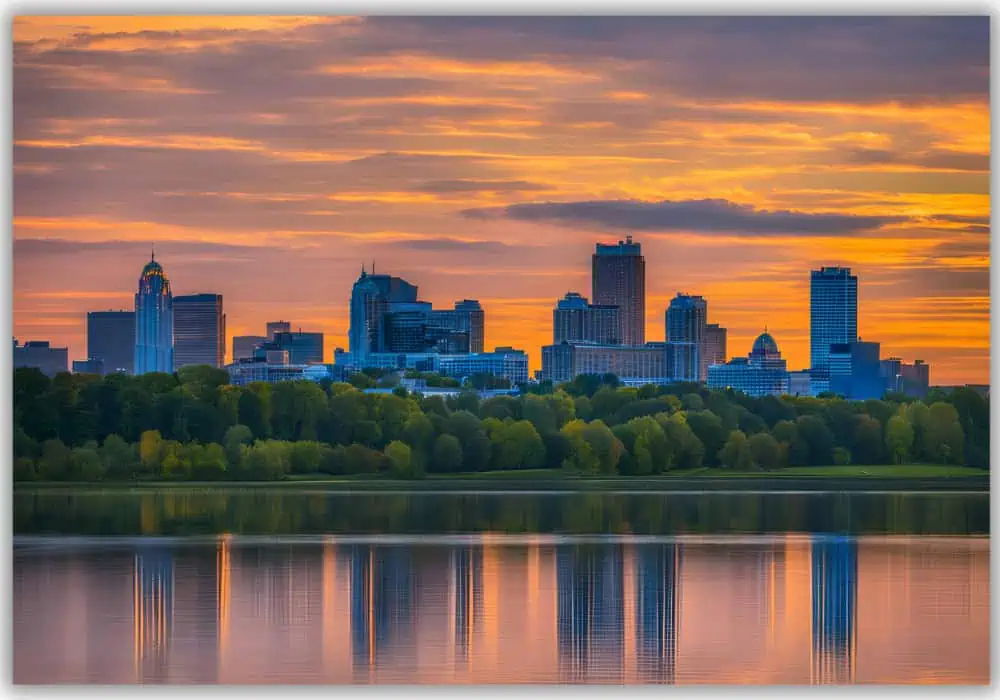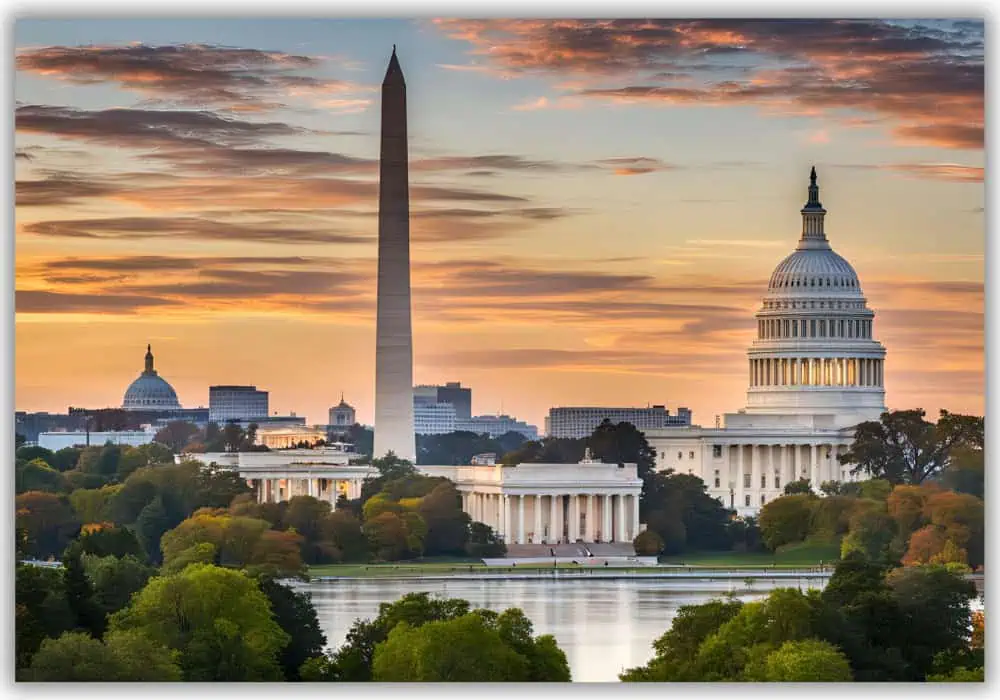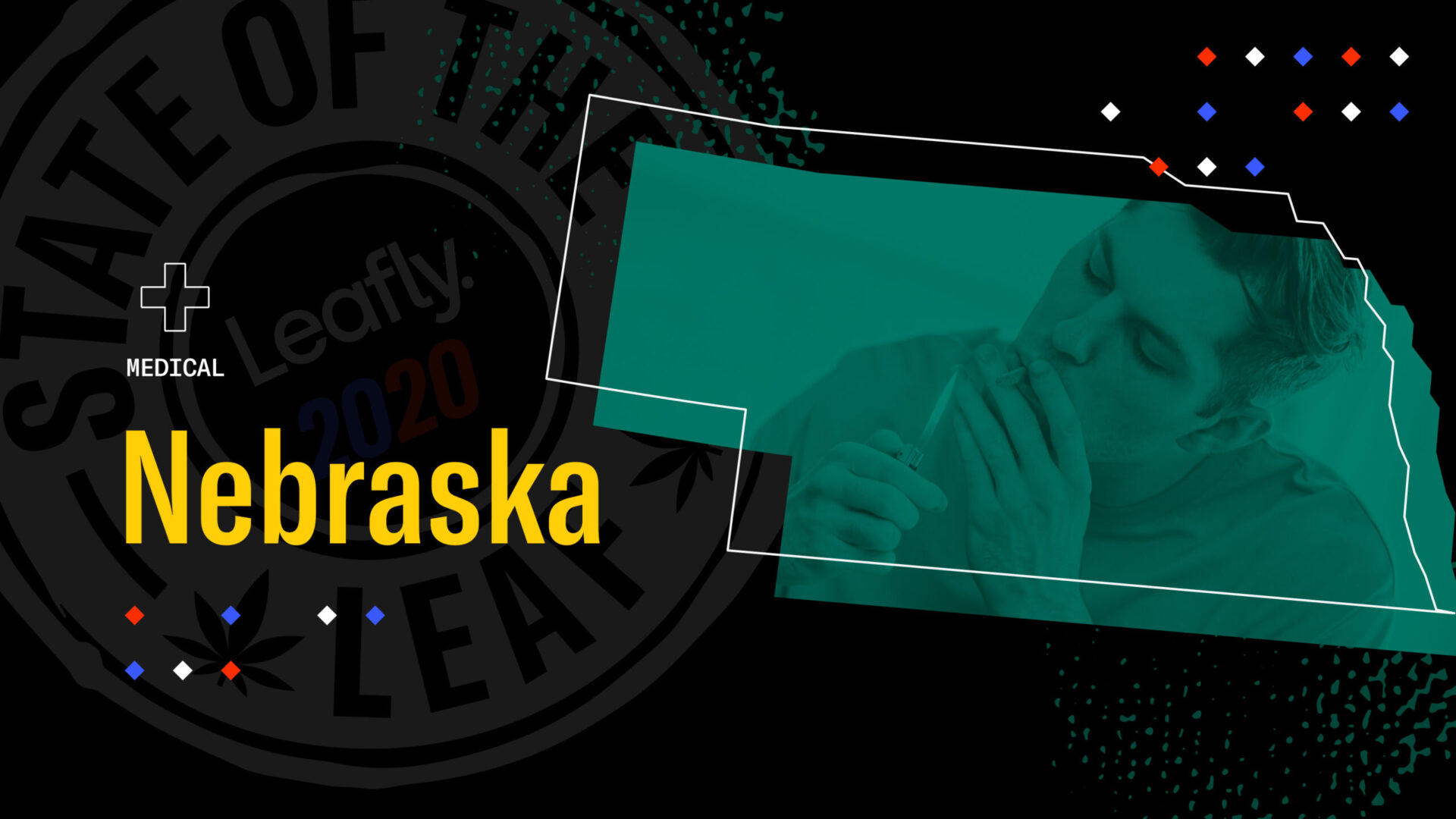Which states have legal recreational weed laws in place? Which states are lagging behind and have no good weed laws in place? Which U.S states have both medical and recreational legal weed? Let’s find out!
Is Weed Legal in Alabama?
The Alabama Medical Cannabis Commission (AMCC) is in charge of overseeing the state’s medical cannabis program, which was founded in 2021.
Patients must meet one of the following criteria in order to be eligible for the program: HIV/AIDS, inflammatory bowel disease, multiple sclerosis, muscular dystrophy, cancer, chronic pain, Crohn’s disease, epilepsy, glaucoma, post-traumatic stress disorder (PTSD), severe and ongoing nausea, seizures, sickle cell anemia, spasticity, Tourette syndrome, and amyotrophic lateral sclerosis (ALS).
Additionally, a certified physician must certify the patient. Patients can apply for a medicinal cannabis patient registration card after receiving certification.
Dispensaries with a license can sell medical marijuana in Alabama.
Up to four ounces of cannabis flower, 36 grams of THC-infused goods, and up to four plants for home production are permissible for patients to possess.
Alabama Laws Regarding Recreational Weed
Alabama still lacks recreational cannabis legalization. In Alabama, having any amount of cannabis in your possession is illegal and can result in up to a year in jail and a $6,000 fine.
More on Alabama Cannabis Laws
Even if you possess a medical marijuana card from another state, it is still unlawful to transfer cannabis across state boundaries.
Additionally, it is forbidden to use cannabis in parks, beaches, and walkways as well as forbidden to operate a vehicle when high on cannabis.
Alabama Marijuana News
On June 12, 2023, the Alabama Medical Cannabis Commission issued its first round of licenses; however, a few days later, the commission determined that the licensing procedure needed to be reviewed. November 7, 2023: No final licenses have been granted by the AMCC.
On June 6, 2023, the Alabama State Legislature adjourned without approving any legislation legalizing or decriminalizing cannabis.
Please visit the Alabama Medical Cannabis Commission website for additional details about the state’s medical marijuana program.
Is Weed Legal in Alaska?
Yes, marijuana use for medicinal purposes as well as for recreational purposes is permitted in Alaska.
Is Weed Legal in Arizona?
The Department of Health Services in Arizona is responsible for overseeing the state’s medical cannabis program, which was founded in 2010 (ADHS).
Cancer, chronic pain, Crohn’s disease, epilepsy, glaucoma, HIV/AIDS, inflammatory bowel disease, multiple sclerosis, muscular dystrophy, obstructive sleep apnea, Parkinson’s disease, post-traumatic stress disorder (PTSD), severe and persistent nausea, Tourette syndrome, and amyotrophic lateral sclerosis (ALS) are among the qualifying medical conditions that patients must have in order to be eligible for the program.
Additionally, a certified physician must certify the patient. Patients can apply for a medicinal cannabis registry identity card after receiving certification.
Dispensaries with a license can sell medical marijuana. At any given moment, patients are permitted to possess up to 2.5 ounces of cannabis flower and up to 5 grams of concentrate.
Arizona Recreational Cannabis Laws
Arizona made recreational cannabis use legal for those over 21 in 2020.
In public, adults are permitted to possess up to 1 ounce of cannabis flower and up to 5 grams of concentrate.
Additionally, adults are permitted to have up to 2.5 pounds of cannabis flower and up to 5 grams of concentrate in their homes.
Retailers with licenses can sell cannabis for recreational use.
It is forbidden to use cannabis in parks, beaches, and sidewalks, among other public areas.
Additionally, it is forbidden to operate a vehicle when high on cannabis.
Additional Vital Information
Regardless matter whether you have a medical cannabis card or not, it is unlawful to cultivate cannabis at home.
Additionally, selling cannabis without a license is prohibited.
Advertisements to minors are prohibited for cannabis businesses.
With sales of recreational cannabis surpassing $1 billion in revenue in its first year, Arizona’s cannabis market has shown to be successful.
Since legalization, the state has also experienced a rise in employment and tourism.
A bill allowing patients to cultivate up to six plants at home for medical purposes was passed by the Arizona State Legislature in 2023.
Please visit the Arizona Department of Health Services website for additional details on the state’s cannabis regulations, both for medical and recreational use.
Want an Arizona dispensary job? Looking for an Arizona marijuana college so you can stand out from other dispensary job applicants? Want to become a master grower in Arizona?
Is Weed legal in Arkansas?
Arkansas’s Medical Marijuana Laws
Patients in Arkansas who meet certain medical criteria are able to use medical cannabis.
Patients must be certified by a licensed physician and have a qualifying medical condition in order to be eligible for the program.
Cancer, Crohn’s disease, epilepsy, glaucoma, HIV/AIDS, multiple sclerosis, Parkinson’s disease, muscular dystrophy, post-traumatic stress disorder (PTSD), seizures, extreme pain, and spinal cord injury are among the qualifying medical conditions.
At any given time, patients are permitted to possess up to 12 grams of concentrates and up to 4 ounces of cannabis flower.
Dispensaries with a license can sell medical marijuana.
Recreational Cannabis Laws in Arkansas
In Arkansas, adults 21 years of age and older are allowed to use cannabis recreationally.
In public, adults are permitted to carry up to 1 ounce of cannabis flower and up to 14 grams of concentrates.
Adults are also permitted to have up to 2.5 pounds of cannabis flower and 750 mg of THC in edibles in their home.
Retailers with licenses can sell cannabis for recreational use.
Regardless matter whether you have a medical cannabis card or not, it is unlawful to cultivate cannabis at home.
Additionally, selling cannabis without a license is prohibited.
Advertisements to minors are prohibited for cannabis businesses.
More Arkansas Cannabis Laws
The first batch of licenses for processing and cultivation facilities were granted by the Arkansas Medical Marijuana Commission in 2023.
Applications for cannabis licenses for recreational use are presently being accepted by the Arkansas Department of Finance and Administration.
Although the cannabis market in Arkansas is still in its infancy, it is expanding quickly. In the upcoming years, cannabis sales are predicted to bring in millions of dollars for the state in tax revenue.
In Arkansas, the cannabis sector is also generating employment. The state has more over 100 authorized dispensaries and cultivation facilities as of November 2023.
Please visit the websites of the Arkansas Department of Health and the Arkansas Department of Finance and Administration for additional details on the state’s legislation pertaining to cannabis use for medical and recreational purposes.
Is Weed Legal in California?
Yes, marijuana use for medical purposes as well as for recreational purposes is permitted in the state of California.
The California Department of Public Health (CDPH) is in charge of overseeing the state’s 1996 implementation of the medical cannabis program.
Patients must have one of the following qualifying medical conditions in order to be eligible for the program:
AIDS, or acquired immune deficiency syndrome
Alzheimer’s condition
ALS, or amyotrophic lateral sclerosis
Nervosa anorexia
Airway Asthma
Autism Spectrum
Anemia
Cancer
Chronic Pain
Crohn’s illness
Depressive States
additional seizure diseases or epilepsy
Myalgia fibrosa
Insomnia
AIDS/HIV
Alzheimer’s disease
inflammation of the intestines
headaches
Several sclerosis
Skeletal dystrophy
Elodysplasia
Neuropathy
Parkinson’s
PTSD, or post-traumatic stress disorder, extreme nausea linked to cancer treatment with chemotherapy
Spasticity linked to paraplegia or multiple sclerosis
Spinal cord damage
State of the superior vena cava
Tymoteo syndrome
Additionally, a certified physician must certify the patient. Patients can apply for a medical marijuana identity card (MMIC) after receiving certification.
Dispensaries with a license can sell medical marijuana in California. Up to 8 ounces of dried cannabis flower, 28 grams of concentrated cannabis, and 72 ounces of edible cannabis products are permissible for patients to own at any given time.
California’s Recreational Cannabis Laws
2016 saw California legalize marijuana for recreational use by adults 21 years of age and up.
At any given moment, adults are allowed to have up to 72 ounces of edible cannabis products, 8 grams of concentrated cannabis, and 28.5 grams of dried cannabis flower.
Retailers with licenses can sell cannabis for recreational use.
Is Weed Legal in Colorado?
Indeed, marijuana use for medical purposes as well as for recreational purposes is permitted in Colorado, where the law was passed.
Is Weed Legal in Connecticut?
The use of marijuana in Connecticut, for either medical or recreational purposes, is now permitted under the state’s law.
Is Weed Legal in Delaware?
Yes, weed is legal in Delaware!
The Delaware Division of Public Health oversees the state’s medical marijuana program, which was started in 2011.
Patients must have one of the following medical problems to be eligible for the program: seizures, severe and persistent nausea, cancer, multiple sclerosis, chronic pain, HIV/AIDS, muscular dystrophy, and post-traumatic stress disorder (PTSD).
A certified physician must also certify the patient. Patients can apply for a medicinal marijuana registration card once they’ve been approved.
Medical marijuana is available for purchase from authorized dispensaries. Up to three ounces of usable marijuana each 14 days, or a total of six ounces per month, are permitted for patients to possess.
Delaware Cannabis Recreation Laws
Delaware made recreational cannabis use legal for those over 21 in April 2023.
Adults are permitted to carry up to 12 grams of concentrates and one ounce of cannabis flower in public areas.
Additionally, adults are permitted to have up to 6 ounces of cannabis flower and 750 mg of THC in edibles in their home.
Licensed stores are the source for recreational cannabis purchases.
In public areas such as parks, beaches, and walkways, it is forbidden to use cannabis.
Driving when high on cannabis is also prohibited.
Is Weed Legal In Florida?
Yes, marijuana is permitted for medical use in Florida. Nonetheless, using marijuana for recreational purposes is still against the law.
Is Weed Legal In Georgia?
No, the usage of marijuana in Georgia for either medical or recreational purposes is against the law in this state. Marijuana possession, regardless of quantity, is considered a criminal violation.
In accordance with Georgia’s medical marijuana law, individuals who meet certain criteria are permitted to carry low-THC oil, but it is illegal to be in possession of the drug in any other form or for recreational use. Possession of less than one ounce of marijuana can result in a maximum sentence of one year in prison and a maximum fine of one thousand dollars.
However, several municipalities in Georgia have passed legislation that remove the possibility of jail time and replace it with fines for marijuana possession offenders caught with less than one ounce of the drug. For instance, violators in the city of Savannah are subject to a fine of $150, whilst those in the city of Athens face a fine of $35.
Some local governments have eliminated jail sentences for marijuana possession offenses and replaced them with fines ranging from $75 to $500 instead. These local governments include:
-Atlanta
-Macon-Bibb
-Statesboro
-The Island of Tybee
-Clarkston
-Chamblee
-Forest Park
-Kingsland
-The South Fulton Area
Is the use of cannabis for medical purposes permitted in Georgia?
Yet, there are some severe restrictions to consider. The law governing the use of medical marijuana in Georgia permits certain qualifying individuals to possess up to 20 fluid ounces of oil obtained from marijuana plants that contains a low level of THC.
The law also makes it illegal for doctors to recommend marijuana to patients for medical purposes.
Is Weed legal In Hawaii
Hawaii does allow the use of cannabis for both medical and recreational purposes.
Hawaiian Medical Marijuana Laws
Establishing the program in 2000, the Hawaii Department of Health (HDOH) oversees the state’s medical cannabis laws.
Patients must meet one of the following medical requirements in order to be eligible for the program:
Cancer
Glaucoma
HIV/AIDS
Multiple sclerosis
Nausea associated with cancer chemotherapy
Persistent muscle spasms associated with multiple sclerosis or cancer
Seizures
Severe and persistent pain
Severe and persistent nausea or vomiting associated with an incurable or debilitating medical condition
Terminal illness
Patients must also be certified by a licensed physician. Once certified, patients can apply for a medical cannabis registry identification card online.
Authorized dispensaries sell medical marijuana. At any given moment, patients are permitted to possess up to 8 grams of potent cannabis and up to 4 ounces of dried flower.
In Hawaii, what is the process for becoming a patient of medical marijuana?
You have to see a qualified physician who is certified in medical cannabis use before you may receive medical marijuana in Hawaii. A certification for medicinal cannabis will be provided to you by your doctor if they think you meet program requirements.
Applying online for a medicinal cannabis registry identity card is possible once you have your certification for medical cannabis. It costs $35 to apply.
You will get an email verifying that your application is being reviewed as soon as you submit it. In 10–14 business days, you should obtain your identity card from the medical cannabis registry.
Is it legal in Hawaii to use cannabis recreationally?
In Hawaii, adults 21 years of age and older are permitted to use cannabis recreationally.
Adults may possess up to 5 grams of concentrated cannabis and 1 ounce of dried cannabis flower in a public setting. Adults may also have up to 15 grams of concentrated cannabis and up to 3 ounces of dried cannabis flower in their personal dwelling.
Please visit the website of the Hawaii Department of Health for additional details regarding the state’s cannabis laws, both recreational and medical.
Is Weed Legal In Idaho?
Weed is illegal for medical or recreational use. The Gem State is one of the few still enforcing outdated weed policies. Even possession of small amounts could land you a misdemeanor.
Is Weed Legal in Illinois?
Indeed, the use of marijuana for medical purposes as well as for recreational purposes is permitted in Illinois.
Is Weed Legal in Indiana?
No, the use of marijuana for either medical or recreational purposes is against the law in the state of Indiana. Marijuana possession, regardless of quantity, is considered a criminal violation.
In January 2023, bills that would decriminalize cannabis use were proposed in both the House of Representatives and Senate: House Bill 1039: Medical and Adult Use Cannabis and Senate Bill 237: Medical Cannabis. We are all awaiting the results.
Is Weed Legal In Iowa?
Yes, but only for medicinal use. Iowa has one of the most dated weed laws on the books. Under the law, only CBD with a trace amount of THC is legal for patients. While weed is legal on paper, the state’s rules have throttled patient count and overall sales.
Is Weed Legal In Kansas?
Marijuana usage, whether for medical or recreational purposes, is not permitted in Kansas and is therefore prohibited. Marijuana possession, regardless of quantity, is considered a criminal violation.
The Kansas House of Representatives voted in favor of the legalization of medical marijuana in 2021; however, Senate Bill 560, which would have authorized the cultivation, distribution, processing, dispensing, and purchase of marijuana and paraphernalia, did not make it out of committee before the end of the legislative session. Let’s hope this passes soon!
Is Weed Legal In Kentucky?
No, the usage of marijuana in Kentucky for either medical or recreational purposes is against the law in this state. Marijuana possession, regardless of quantity, is considered a criminal violation. Although a recent bill to legalize cannabis medically in Kentucky is making its way to the Senate.
The Senate Licensing & Occupations Committee passed the legislation from Sen. Stephen West (R) and 12 other senators in a 8-3 vote. It now heads to the Senate floor for final approval.
Is Weed Legal In Louisiana?
Yes, marijuana is permitted for medical purposes in Louisiana. Adult-use remains illegal with no end in sight.
Lawmakers have softened their severe penalties over the years. The state is still a long way away from getting adult-use weed. It has reformed its program to provide more access for its patients.
Qualifying Conditions for Medical Marijuana in Louisiana
- Cancer
- HIV/AIDS
- Cachexia or wasting disorder
- Seizures disorders (including but not limited to epilepsy)
- Spasticity
- Crohn’s disease
- Muscular dystrophy
- Severe muscle spasms
- Glaucoma
- Parkinson’s disease
- Post-traumatic stress disorder (PTSD)
- Multiple sclerosis
- Intractable pain
- Alzheimer’s disease
- Amyotrophic lateral sclerosis (ALS)
- Traumatic brain injury
- Concussion
- Chronic pain associated with either fibromyalgia or sickle cell disease
- Conditions resulting in the patient receiving hospice or palliative care
- Autism spectrum disorders
- Any condition the physician “considers debilitating to an individual patient”
Is Weed Legal in Maine?
Yes, marijuana use for medical purposes as well as for recreational purposes is permitted in the state of Maine.
Is Weed Legal In Maryland?
Yes, the use of marijuana for medical purposes is, in fact, permitted in the state of Maryland.
Is recreational weed legal in Maryland?
Yes, according to new law, beginning on July 1, 2023, adults 21 or older can possess and consume up to 1.5 ounces of cannabis flower, 12 grams of concentrated cannabis, or a total amount of cannabis products that does not exceed 750 mg THC. This amount is known as the “personal use amount.”
Is Weed Legal In Massachusetts?
Yes, marijuana use for medical purposes as well as for recreational purposes is permitted in the state of Massachusetts.
According to the law, adults who are at least 21 years old are permitted to possess up to one ounce of cannabis in public and up to 10 ounces in their own homes.
Regarding the cultivation of cannabis, citizens of the state of Massachusetts are permitted to cultivate up to six plants for personal use per individual, with a maximum of 12 plants per household.
Yet, in order to obtain a license from the Cannabis Control Commission, one must engage in cannabis cultivation for commercial purposes (CCC). The Cannabis Control Commission is responsible for regulating the whole cannabis business, from licensing and inspections to compliance and enforcement.
Is Weed Legal In Michigan?
Yes, marijuana use for medical purposes as well as for recreational purposes is permitted in the state of Michigan.
Is Weed Legal In Minnesota?
The Minnesota Department of Health oversees the state’s 2014-established medical cannabis program.
Cancer, chronic pain, Crohn’s disease, epilepsy, glaucoma, HIV/AIDS, inflammatory bowel disease, multiple sclerosis, muscular dystrophy, obstructive sleep apnea, Parkinson’s disease, post-traumatic stress disorder (PTSD), severe and persistent nausea, Tourette syndrome, and amyotrophic lateral sclerosis (ALS) are among the qualifying medical conditions that patients must have in order to be eligible for the program.
In 2023, Minnesota legalized cannabis for recreational use by adults 21 and older.
In public, adults are permitted to carry up to 2 ounces of cannabis flower and up to 8 grams of concentrates.
Is Weed Legal In Mississippi?
Yes, marijuana is authorized for medical purposes in Mississippi.
Mississippi does not yet have a recreational cannabis program in place, but it does have one for medical use.
The Mississippi State Department of Health is in charge of overseeing the state’s medicinal cannabis program, which was founded in 2020 (MSDH).
Patients must have one of the following qualifying medical conditions in order to be eligible for the program:
Cancer
Crohn’s illness
Seizures
Insomnia
AIDS/HIV
Inflammation of the intestines
Several sclerosis
Skeletal dystrophy
Parkinson’s disease i
PTSD, or post-traumatic stress disorder
Severe and ongoing nausea
Epilepsy
Cystic cellular anemia
Variability
Tourette Syndrome
ALS, or amyotrophic lateral sclerosis
Additionally, a certified physician must certify the patient. Patients can apply online for a medicinal cannabis registry identity card once they have been certified.
Dispensaries with a license can sell medical marijuana. At any given moment, patients are permitted to possess up to 8 grams of concentrated cannabis and up to 2.5 ounces of dried cannabis flower.
Is Weed Legal in Missouri?
Yes, marijuana is allowed in Missouri for both recreational and medicinal purposes.
Established in 2018, Missouri’s medical cannabis program is overseen by the Department of Health and Senior Services (DHSS).
Patients must have one of the following qualifying medical conditions in order to be eligible for the program:
Cancer
Persistent Ache
Crohn’s illness
Seizures
Insomnia
AIDS/HIV
inflammation of the intestines
Several sclerosis
Skeletal Dystrophy
Parkinson’s
PTSD, or post-traumatic stress disorder
Extreme and ongoing nausea
Epilepsy
Cystic cellular anemia
Variability
Tourette Syndrome
ALS, or amyotrophic lateral sclerosis
Additionally, a certified physician must certify the patient.
Patients can apply online or by mail for a medicinal cannabis patient card once they have been certified.
Dispensaries with a license can sell medical marijuana. At any given moment, patients are permitted to possess up to 8 grams of concentrates and 6 ounces of cannabis flower.
Adults 21 and older are allowed to use marijuana recreationally in Missouri.
In public, adults are permitted to carry up to 3 ounces of cannabis flower and up to 8 grams of concentrates. Adults are also permitted to have up to 6 ounces of cannabis flower and 750 mg of THC in edibles in their home.
Is Weed Legal In Montana?
Only medical weed is legal in the state. Adult-use has been illegal since 1929. Possession and sale carry harsh minimum sentences and big fines. However, the state is very close to legalizing adult-use pot. Learn more about the state’s weed and hemp laws below.
Is Weed Legal In Nebraska?
No, the usage of marijuana in Nebraska for either medical or recreational purposes is against the law in Nebraska. Marijuana possession, regardless of quantity, is considered a criminal violation.
But, there are bills in place that might change this.
Legislation is pending to legalize adult use marijuana in Nebraska.
Is Weed Legal in Nevada?
In Nevada, the use of marijuana for medical purposes as well as for recreational purposes is permitted.
Is Weed Legal in New Hampshire?
Weed is only legal for medicinal purposes in New Hampshire. Recreational use is illegal, but possession of up to three-quarters of an ounce of cannabis is decriminalized.
Is Weed Legal In New Jersey?
Yes, the use of marijuana for medical purposes as well as for recreational purposes is permitted in the state of New Jersey. Cannabis delivery in New Jersey is also available.
Is Weed Legal In New Mexico?
Absolutely, the usage of marijuana in New Mexico for both medicinal purposes and for recreational purposes is now legal.
Is Weed Legal In New York?
Yes, it is legal to consume cannabis for both recreational and medicinal purposes in New York.
The New York State Department of Health (NYSDOH) is responsible for regulating the medicinal cannabis program in New York, which was founded in 2014.
Patients must have one of the following qualifying medical conditions in order to be eligible for the program:
Cancer
Chronic pain
Crohn’s illness
seizures
Insomnia
AIDS/HIV
inflammation of the intestines
Several sclerosis
skeletal dystrophy
OCD, or obsessive-compulsive disorder
Parkinson’s
PTSD, or post-traumatic stress disorder
Extreme and ongoing nausea
Spinal cord damage
Tourette Syndrome
ALS, or amyotrophic lateral sclerosis
In order to obtain a medical cannabis card in New York, it is necessary to first schedule an appointment with a registered medical cannabis physician.
You can then apply online for a medicinal cannabis registry identification card with your medical cannabis certification. There is a $50 application fee.
You will receive an email message confirming that your application is being reviewed as soon as it is submitted. Your medical cannabis registry identification card should arrive in 10–14 business days.
For those 21 years of age and older, cannabis is legal in New York for recreational use.
In public, adults are permitted to carry up to 24 grams of concentrated cannabis and up to 3 ounces of cannabis flower. Adults are also permitted to have up to 6 ounces of cannabis flower and 750 mg of THC in edibles in their home.
Retailers with licenses can sell cannabis for recreational use.
Is Weed Legal in North Carolina?
No, the use of marijuana for either medical or recreational purposes is against the law in North Carolina. Marijuana possession, regardless of quantity, is considered a criminal violation.
North Carolina is one of the worst US states for cannabis laws and needs an overhaul in who is in office.
Is Weed Legal in North Dakota?
Yes, weed is legal medically in North Dakota, but recreational use is not.
North Dakota’s medical cannabis program was established in 2016 and is regulated by the North Dakota Department of Health (NDDoH).
To qualify for the program, patients must have one of the following qualifying medical conditions:
- Cancer
- Severe and persistent nausea associated with cancer chemotherapy
- Multiple sclerosis
- Amyotrophic lateral sclerosis (ALS)
- Parkinson’s disease
- Crohn’s disease
- Epilepsy
- Seizures
- Severe and persistent muscle spasms
- Glaucoma
- Post-traumatic stress disorder (PTSD)
- Intractable pain
- Medical documentation of a condition that is comparable to the following conditions in terms of the intensity and duration of pain, debilitation, or refractory nature of the condition: cancer, multiple sclerosis, ALS, Parkinson’s disease, Crohn’s disease, epilepsy, seizures
Patients must also be certified by a licensed physician. Once certified, patients can apply for a medical marijuana registry identification card online.
Medical cannabis can be purchased from licensed dispensaries. Patients are allowed to possess up to 3 ounces of dried cannabis flower and up to 24 grams of concentrated cannabis at any given time.
Is Weed Legal In Ohio?
Yes, the use of marijuana for medical purposes is permitted in the state of Ohio, and recreational cannabis passed in Ohio as well! Recreational cannabis sales started on August 6th, 2024.
Is Weed legal In Oklahoma?
Yes, marijuana is permitted for medical purposes in Oklahoma. Recreational cannabis is still illegal in Oklahoma.
Is Weed Legal In Oregon?
In Oregon, the use of marijuana for medical purposes as well as for recreational purposes is permitted.
Is Weed Legal In Pennsylvania?
Yes, marijuana is legal for medical use in Pennsylvania. Nonetheless, using marijuana for recreational purposes is still against the law.
Is Weed Legal in Rhode Island?
Yes, the use of marijuana for both medicinal purposes and for recreational purposes is permitted in Rhode Island.
On May 25, 2022, Rhode Island became the 19th state to legalize adult-use cannabis after Governor Daniel McKee signed the “Rhode Island Cannabis Act” into law. Just one day earlier, the state’s General Assembly passed the bill.
Is Weed Legal in South Carolina?
No, the use of marijuana for either medical or recreational purposes is against the law in South Carolina. Marijuana possession, regardless of quantity, is considered a criminal violation.
Is Weed Legal in South Dakota?
Yes, the use of marijuana for medical purposes as well as for recreational purposes is legal in South Dakota.
Is Weed Legal in Tennessee?
No, the use of marijuana in Tennessee for either medical or recreational purposes is against the law in this state. Marijuana possession, regardless of quantity, is considered a criminal violation.
Open a legal cannabis business in Tennessee with online cannabis training from the Tennessee cannabis college today!
Is Weed Legal in Texas?
No, the usage of marijuana in Texas for either medical or recreational purposes is against the law in Texas. Marijuana possession, regardless of quantity, is considered a criminal violation in Texas.
Is Weed Legal in Utah?
Yes, marijuana is permitted for medical purposes in Utah. Nonetheless, using marijuana for recreational purposes is still against the law.
Utah’s medical cannabis program allows qualifying patients to use medical marijuana.
Is Weed Legal in Vermont?
Yes, marijuana use for medicinal purposes as well as for recreational purposes is permitted in Vermont.
Is Weed Legal in Virginia?
Yes, marijuana use for medical purposes as well as for recreational purposes is legal in the state of Virginia. Nonetheless, laws for the use of cannabis for recreational purposes are still in the process of being drafted.
Is Weed Legal in Washington?
Yes, marijuana use for medical purposes as well as for recreational purposes is legal in the state of Washington. Nonetheless, there are restrictions on the locations where marijuana can be consumed as well as the amounts that can be held.
Is Weed Legal in Washington D.C?
Yes, cannabis is legal for both recreational and medical use. Despite being legal, weed isn’t so easy to come by in the country’s capital.
Washington D.C. voters approved Initiative 71 in 2014 to legalize the recreational use of cannabis. After passing with a 64.87 percent approval rate, the bill went into effect on February 26, 2015. The law states that adults over 21 years of age can have up to two ounces of cannabis. That means that police officers can’t arrest you for cannabis possession.
Adults can grow up to three mature and three immature plants at home. Adults can transfer up to one ounce of pot to another person. That’s how much of the adult-use market works in the district.
Despite voter approval, Congress opposed Initiative 71’s efforts to legalize weed. Due to the federal law’s prohibition of the drug, Congress declared commercial sales against the law. In December 2014, Congress passed a spending bill that included a provision targeting D.C.’s Initiative 71.
The amendment included language that barred using funds to support laws dealing with cannabis or a controlled substance. For this reason, you can’t buy cannabis in D.C. through traditional means.
Washington D.C. is a district, not a state and the federal government owns much of its land area. In fact, the federal government controls 29 percent of its total land area.
Smoking in public is against the law in many states with legal weed including Washington D.C. In D.C., however, you are able to walk around with a couple of ounces of pot in most areas. However, you are breaking the law if you’re carrying on federally-owned land. Federal land includes national parks, military sites, and other lands.
How to Get a Medical Cannabis Card in DC
Qualifying patients are able to buy and use cannabis for medical purposes. A doctor can provide you with a written recommendation if you have a qualifying condition. The first step toward getting a card is booking an appointment with a licensed physician. If approved, you’ll receive a doctor’s recommendation number to register online or by mail.
A medical cannabis card can last one year from the date of issue. You can renew your card every year before the expiration date. To register with the Department of Health, you’ll need to submit the following items:
- Social security number
- Two recent passport photos
- Photocopy of a U.S., state, or district government-issued ID
- Application fee ($100)
- Low-income application fee ($25) with proof
- Two forms of proof of residency
- Doctor’s recommendation
You can submit your application online or by mail. For paper application submissions, send them to this address:
DC HEALTH-Medical Marijuana Program
899 North Capitol Street NE 2nd Floor
Washington D.C., 20002
Qualifying Conditions and Treatments For Cannabis in D.C
- HIV/AIDS
- Glaucoma
- Conditions marked by severe and persistent muscle spasms, such as multiple sclerosis
- Cancer
- Any chronic or debilitating condition that can’t be treated by conventional measures
- Chemotherapy
- Use of azidothymidine or protease inhibitors
- Radiotherapy
- Any treatment whose side effects would benefit from medical cannabis use
Is Weed Legal in West Virginia?
The use of marijuana for medicinal purposes is permitted in West Virginia. Nonetheless, using marijuana for recreational purposes is still against the law.
Is Weed Legal in Wisconsin?
No, the usage of marijuana in Wisconsin for either medical or recreational purposes is against the law in Wisconsin. Marijuana possession, regardless of quantity, is considered a criminal violation.
Is Weed Legal in Wyoming?
No, the usage of marijuana in Wyoming for either medical or recreational purposes is against the law in Wyoming. Marijuana possession, regardless of quantity, is considered a criminal violation.
Fred Hernandez
Fred Hernandez is a highly accomplished and versatile writer, boasting an extensive background in the cannabis industry. With an in-depth understanding of various sectors including cultivators, processors, retailers, and brands, Fred’s expertise spans across the entire cannabis landscape. As a prominent contributor to CTU, he consistently delivers insightful articles exploring the latest developments, news, and regulations shaping the cannabis industry. Whether it’s delving into the intricacies of cannabis products, cannabis strain reviews, or providing comprehensive analyses of cannabis laws, or sharing expert insights on cannabis cultivation techniques, Fred’s wealth of knowledge positions him as an invaluable writer and educator for all cannabis-related subjects.



